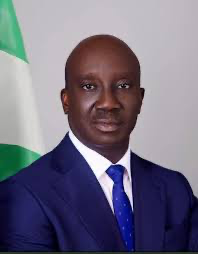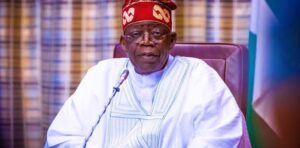President Bola Ahmed Tinubu has directed relevant federal agencies to promptly address the issues raised by the governments of the United States and the United Arab Emirates (UAE) regarding their recent changes to visa policies that impact Nigerian citizens.
This directive was announced in a statement released on Tuesday by the Special Adviser to the President on Information and Strategy, Mr. Bayo Onanuga. According to the statement, the U.S. government officially communicated its reasons for altering visa privileges for Nigerian passport holders. The two key concerns highlighted were the rising number of Nigerians overstaying their visas and the difficulty in obtaining credible and consistent records of applicants from Nigerian authorities.
Although the UAE’s position was not outlined in detail, its earlier suspension of visa issuance to Nigerians reflects similar underlying concerns. Both countries appear to be responding to challenges linked to immigration violations and data verification, particularly as they affect border control and national security.
In response, President Tinubu has instructed all concerned ministries and agencies, including the Nigeria Immigration Service, the Ministry of Foreign Affairs, the Ministry of Interior, and the Office of the National Security Adviser, to work together to resolve these concerns swiftly. His directive calls for a collaborative approach to enhance Nigeria’s identity management, strengthen immigration controls, and ensure better coordination and transparency in record-keeping systems.
This move is part of the Tinubu administration’s wider commitment to restoring Nigeria’s global image and reinforcing international trust in its institutions. It also underscores the President’s broader foreign policy agenda, which prioritizes diplomatic engagement, global cooperation, and the protection of Nigerian citizens abroad.
The recent visa restrictions by the United States and UAE have sparked concern among Nigerians at home and in the diaspora. Many professionals, students, businesspeople, and tourists who rely on international mobility have been directly affected. As a result, there is growing anxiety about the future of travel and migration opportunities for Nigerians. Tinubu’s intervention is viewed as a necessary and strategic step to mitigate the negative impacts of these policy changes and to open a path toward resolution.
By taking immediate steps to address the complaints of these foreign governments, the Nigerian government is signaling its readiness to reform its internal systems and engage constructively with the international community. This approach could pave the way for the reversal of restrictive policies and help restore access to travel, business, and educational opportunities for Nigerians.
Although the outcome of these efforts may not be immediate, the President’s directive demonstrates a clear commitment to diplomacy, accountability, and reform. Nigerians around the world are hopeful that these actions will lead to meaningful improvements, not only in how the country is perceived abroad but also in the quality of governance and institutional cooperation at home.
With this move, President Tinubu has sent a strong message: Nigeria is willing to do the necessary work to rebuild its global standing and safeguard the rights and aspirations of its citizens wherever they may be.






